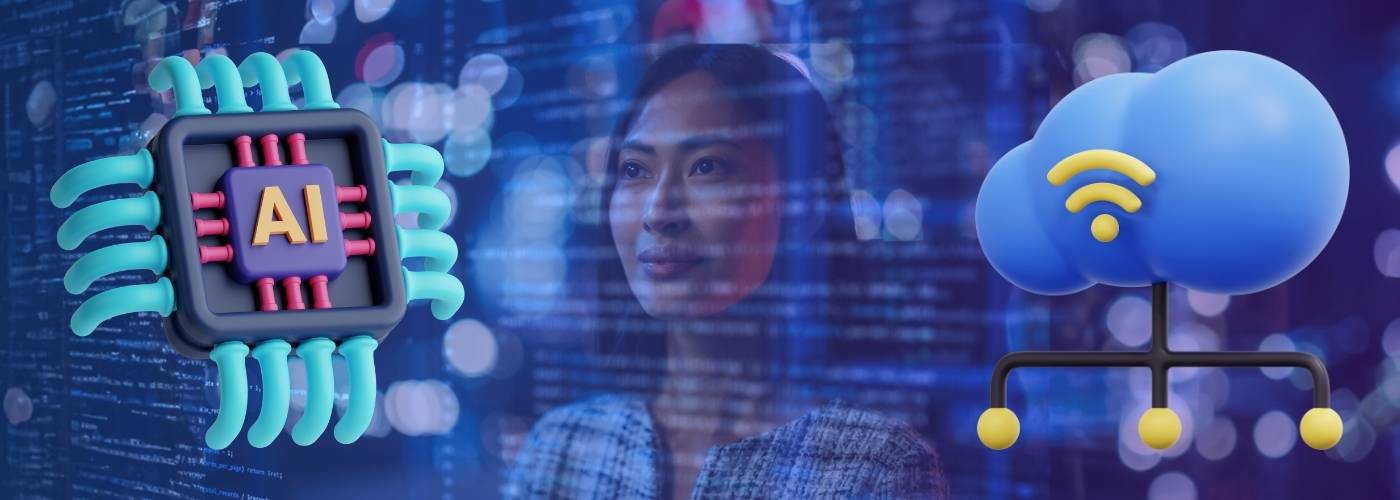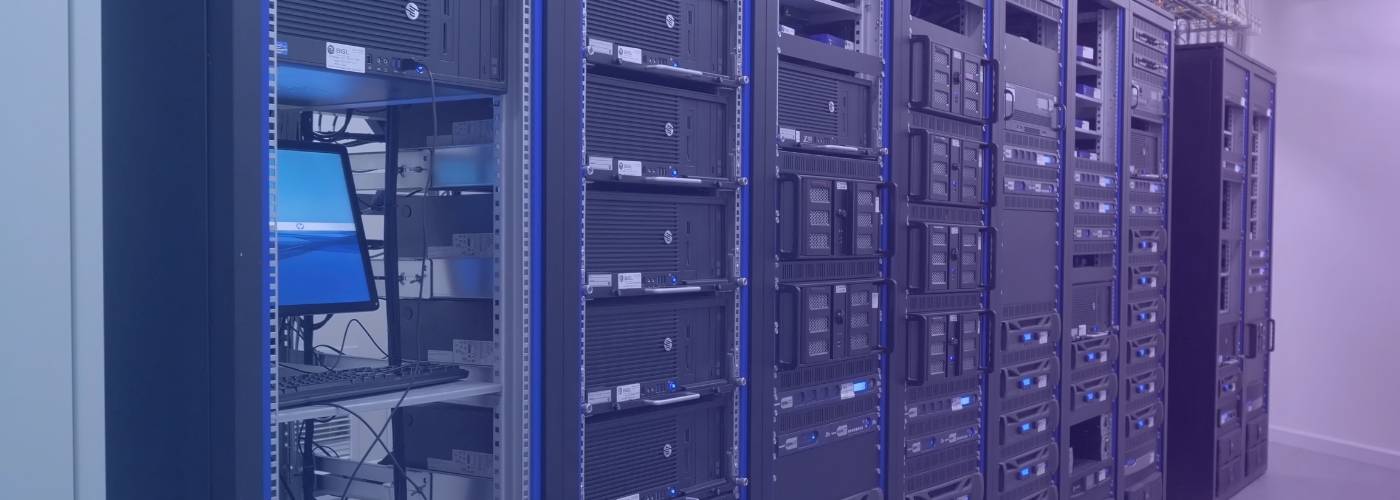In recent years, the rapid advancement of artificial intelligence (AI) has revolutionized various industries. One such sector that has been greatly impacted is cloud computing. AI technologies have brought about significant changes in how organizations manage and utilize their cloud infrastructure. From enhancing security measures to optimizing resource allocation, AI is reshaping the way businesses operate within the digital landscape. This article explores the impact of AI cloud solutions.
Are Cloud Computing & AI The Same?

On the other hand, AI involves creating intelligent machines that can mimic human behavior and perform tasks that typically require human intelligence, such as speech recognition or decision-making. AI relies on algorithms and machine learning to analyze data and make predictions or provide recommendations.
Although cloud computing can support AI by providing the necessary infrastructure for storing and processing large datasets used in AI training models, they have distinct roles in technology.
Cloud computing is an enabler for AI, providing the resources needed for its development and implementation. While both technologies are revolutionizing industries across various sectors, it’s crucial to understand their differences in order to leverage their capabilities effectively.
One way both cloud solutions and AI are positively impacting the working industry is by increasing efficiency and productivity. Cloud solutions allow for easy access to data, applications, and resources from anywhere at any time, eliminating the need for physical servers or on-premises infrastructure. This enables businesses to scale up or down their operations based on demand, reducing costs and improving flexibility.
On the other hand, AI technologies have the potential to automate repetitive tasks, analyze vast amounts of data quickly and accurately, and make intelligent predictions or recommendations in real time.
What Is The Relationship Between Cloud Computing and AI?

On the other hand, AI enhances cloud computing by optimizing its capabilities. Intelligent algorithms can analyze usage patterns and predict demand, leading to more efficient resource allocation within the cloud environment.
Additionally, AI-powered automation can streamline processes in areas like security and data management, making cloud computing more secure and reliable.
Moreover, as both technologies continue to evolve, they are driving innovation together. For instance, edge computing – bringing computation closer to the source of data generation – complements both cloud computing and AI by reducing latency issues in real-time applications.
This collaboration also extends into areas such as natural language processing (NLP) where AI models trained on vast amounts of data stored in the cloud enable advanced language understanding capabilities.
While each technology has its distinct advantages, it is their harmonious interaction that propels them forward. The union of cloud computing and AI unlocks immense potential for businesses across various sectors, such as healthcare diagnostics, autonomous vehicles, personalized recommendations systems, and much more.
As these two fields continue to converge with advancements like edge computing and NLP enhancements powered by the cloud’s massive resources – we can observe their profound impact on industries around the globe over many years and decades.
What Is The Best Cloud Solution For AI?

Unlike shared or public clouds, dedicated cloud solutions offer exclusive resources and computing power to organizations, allowing them to fully utilize AI capabilities without any performance limitations. This is particularly important for demanding AI tasks that require significant computational resources.
One of the key advantages of dedicated cloud solutions for AI is their ability to provide real-time learning and decision-making. These solutions provide the necessary infrastructure and resources to process large volumes of data, train AI models, and deploy them at scale. With dedicated cloud solutions, businesses can leverage AI to gain valuable insights, automate processes, enhance customer experiences, and drive innovation.
Moreover, dedicated cloud solutions enable organizations to have greater control over their AI deployments. They allow more customization options, such as choosing specific hardware configurations or optimizing the infrastructure for specific AI workloads.
With this level of flexibility and control, organizations can fine-tune their environment to meet the unique requirements of their AI projects, resulting in better performance and faster time-to-market.
Dedicated cloud solutions offer numerous benefits that make them ideal for AI applications. From superior performance capabilities to enhanced security measures and increased flexibility, these solutions empower organizations to leverage the full potential of artificial intelligence while ensuring data integrity and privacy.
As businesses continue to adopt AI technologies at an accelerating pace, it becomes evident that dedicated cloud solutions will be instrumental in driving successful digital transformation journeys across various industries.
Can You Backup AI On Cloud Hosting?
Backing up AI on cloud hosting is not only a possibility but also an imperative for organizations that rely heavily on artificial intelligence technologies. Cloud hosting offers numerous advantages for AI backup, including scalability, flexibility, and cost-effectiveness. By storing AI models and training data in the cloud, organizations can easily scale their operations and allocate resources as needed.
Furthermore, backing up AI on a service like Acronis backup provides a level of redundancy which ensures that valuable data is protected from unforeseen events like hardware failures or natural disasters. With automated backup solutions offered by leading cloud providers, organizations can schedule regular backups to minimize downtime and reduce the risk of data loss.
In addition to traditional backup methods such as file-level backups, advancements in cloud technologies have given rise to more sophisticated approaches like snapshot-based backups.
These snapshots capture the current state of an AI system at a specific point in time and store it as a single cohesive unit. This allows for quick recovery and rollback options in case of any issues during model updates or deployments.
Overall, backing up AI on cloud hosting is crucial to safeguard not just valuable training data but also the investment made in developing AI models.



阅读更多
Sharktech Announces New Web Hosting and Cloud Industry Alliance
Sharktech and 2
3 月
Think the Cheapest Dedicated Server is A Good Idea? What You Need to Know
Shoul
3 月
Discover How These 8 Cloud Monitoring Tools Can Help You Drive Better Business Performance
When
3 月
Pick the Best Cloud Management Platform with These 5 Pro Tips
Managi
3 月
Thinking About Public to Private Cloud Migration? Here’s the Essentials
The clou
3 月
Why a Cloud Migration Checklist Helps Overcome Migration Challenges
Moving d
3 月